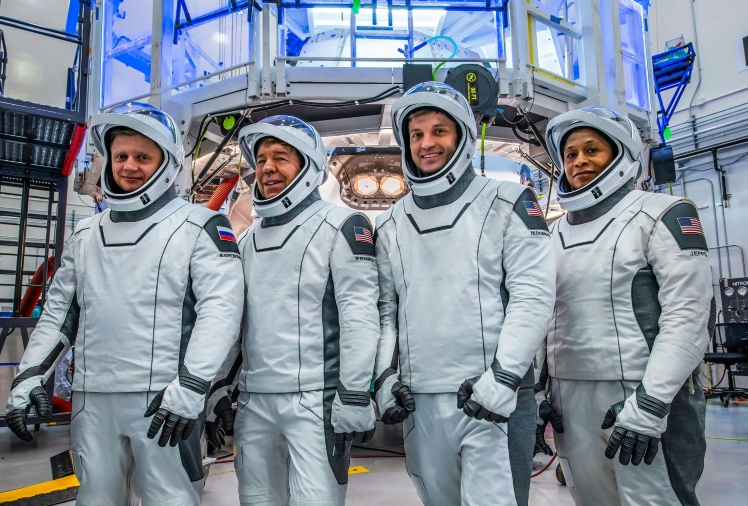In a remarkable display of international cooperation, a SpaceX rocket carrying three US astronauts and one Russian cosmonaut has successfully launched from Florida’s Kennedy Space Center, embarking on a mission bound for the International Space Station (ISS).
Against the backdrop of escalating tensions due to the war in Ukraine, this mission highlights the enduring partnership between the US and Russia in space exploration.
The crew, comprising Matthew Dominick, Jeanette Epps, Alexander Grebenkin, and Michael Barratt, represents a diverse blend of expertise and experience. Dominick leads the mission, marking his first journey into space alongside Epps and Grebenkin, while Barratt, a seasoned physician, embarks on his third visit to the ISS.
SpaceX’s reusable capsule, previously flown four times, underscores the technological advancements driving contemporary space exploration. Beyond the awe-inspiring spectacle of space travel, the mission holds significant scientific promise.
SpaceX Launch Overcomes Weather Challenges

The crew intends to conduct a range of experiments, including pioneering research into degenerative diseases facilitated by the unique low-gravity environment of space. Of particular note is the cultivation of artificial replicas of human organs—an endeavor impossible to replicate on Earth.
The launch, initially scheduled for Saturday, faced a postponement due to adverse weather conditions—a reminder of the inherent risks and challenges of space exploration. However, the successful liftoff represents a triumph of perseverance and collaboration.
The ISS itself stands as a testament to global unity, maintained through the collective efforts of space agencies from Canada, Europe, Japan, the United States, and Russia. Despite geopolitical tensions on Earth, the station remains a beacon of cooperation and scientific advancement.
As the crew embarks on their six-month mission, they carry not only the hopes of their respective nations but also the aspirations of humanity for exploration, discovery, and cooperation beyond the confines of our planet.
In an era fraught with division, their journey serves as a poignant reminder of the boundless potential of collaboration in the pursuit of knowledge and progress.
